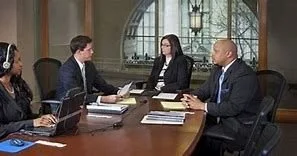Demystifying Depositions: How Legal Nurse Consultants Empower Clients and Attorneys
Depositions play a pivotal role in personal injury, medical malpractice, and workers’ compensation cases. As sworn out-of-court testimonies, depositions allow attorneys to gather critical information, assess credibility, and build stronger cases. But for many clients, depositions can feel intimidating and confusing.
At Lexcura Summit Medical-Legal Consulting, our expert Legal Nurse Consultants (LNCs) guide both clients and attorneys through the deposition process with clarity, preparation, and support. This guide breaks down what to expect during a deposition and how advocacy from LNCs can make a meaningful difference.
What Happens During a Deposition?
A deposition is a formal legal procedure that involves questioning a witness under oath. It typically unfolds in a legal office or remote setting and follows a structured process:
Swearing In: The witness is sworn in and agrees to provide truthful testimony.
Attorney Questioning: Lawyers from both sides ask questions to establish or challenge facts.
Document Review: Relevant evidence—such as medical records or reports—may be presented to support or clarify testimony.
Official Recording: A court reporter transcribes every word, producing a transcript that may later be used in court.
How Legal Nurse Consultants Support Clients
For clients, especially those unfamiliar with legal procedures, depositions can feel overwhelming. Lexcura Summit’s Legal Nurse Consultants provide essential advocacy and preparation services to help clients stay calm, focused, and confident.
Key Areas of Client Support:
Emotional Support: LNCs help clients manage nerves, offering reassurance before and during depositions.
Medical Review & Clarification: LNCs guide clients through their medical records, explain medical terminology, and help them understand how their injuries will be discussed.
Communication Coaching: LNCs assist clients in articulating how their injuries have affected daily life—important context that helps personalize testimony.
In-Deposition Presence: When permitted, LNCs attend the deposition to offer moral support and ensure medical accuracy during questioning.
How Legal Nurse Consultants Support Attorneys
Attorneys also benefit significantly from partnering with LNCs before and during depositions. Our team offers specialized medical insight that enhances legal strategy and streamlines preparation.
Attorneys also benefit significantly from partnering with LNCs before and during depositions. Our team offers specialized medical insight that enhances legal strategy and streamlines preparation.
Legal Support Includes:
Record Organization: LNCs organize and summarize medical records into coherent, chronological narratives for fast access during depositions.
Medical Interpretation: We translate complex medical terms into clear, courtroom-ready language.
Expert Witness Coordination: LNCs may recommend medical experts whose testimony can strengthen your case.
Strategy Development: By identifying key medical events, complications, or patterns, LNCs help attorneys frame compelling case narratives.
Deposition FAQs
Q: What is the purpose of a deposition?
A deposition gathers sworn testimony to clarify facts and assess the strengths and weaknesses of a case before trial.
Q: Is a deposition the same as testifying in court?
No. Depositions happen outside the courtroom, but transcripts can be used as evidence during trial.
Q: Who attends a deposition?
Typically, the witness, attorneys for both sides, a court reporter, and sometimes a videographer. An LNC may also be present for support.
Q: Can I take breaks during a deposition?
Yes. Breaks are allowed if you feel overwhelmed or need a moment to regroup.
Q: What should I wear?
Choose business or business-casual attire. Your appearance should reflect professionalism and respect for the process.
Tips for a Successful Deposition
For Clients:
Be Honest: If you don’t know an answer, it’s okay to say so. Never guess or speculate.
Stay Calm: Breathe deeply and take your time answering each question.
Stick to the Facts: Answer what’s asked—don’t volunteer extra information.
Practice Ahead of Time: Work with your LNC or attorney to review likely questions.
For Attorneys:
Prepare Strategically: Collaborate with LNCs to identify key medical facts and documents.
Tell the Story: Use the deposition to present a clear, cohesive account of your client’s experience.
Use Medical Expertise: LNCs can translate jargon into understandable language for both clients and opposing counsel.
Expect Challenges: Be ready for objections or tough questions by reviewing opposing counsel’s potential tactics.
Real-Life Advocacy in Action
Confidence Coaching: One client, anxious about discussing her injury, practiced responses with an LNC beforehand. This preparation helped her testify clearly and confidently.
Organized Medical History: In a case with numerous treatment dates, an LNC created a concise timeline that made it easier for the attorney to question the witness and guide the deposition.
Expert Testimony Coordination: When a client needed a neurologist’s perspective, our LNC identified a qualified expert whose testimony clarified the long-term impacts of the injury—leading to a stronger case.
Empowering Clients and Legal Teams Through Medical-Legal Expertise
At Lexcura Summit Medical-Legal Consulting, we believe that preparation is power. Depositions are more than just a legal formality—they’re an opportunity to tell your story, present the facts, and lay the groundwork for a successful outcome. Our Legal Nurse Consultants stand beside you every step of the way, ensuring both clients and attorneys are informed, equipped, and supported.
Need expert support for your next deposition?
Contact Lexcura Summit today to learn how our medical-legal consulting team can guide your strategy and strengthen your case.



